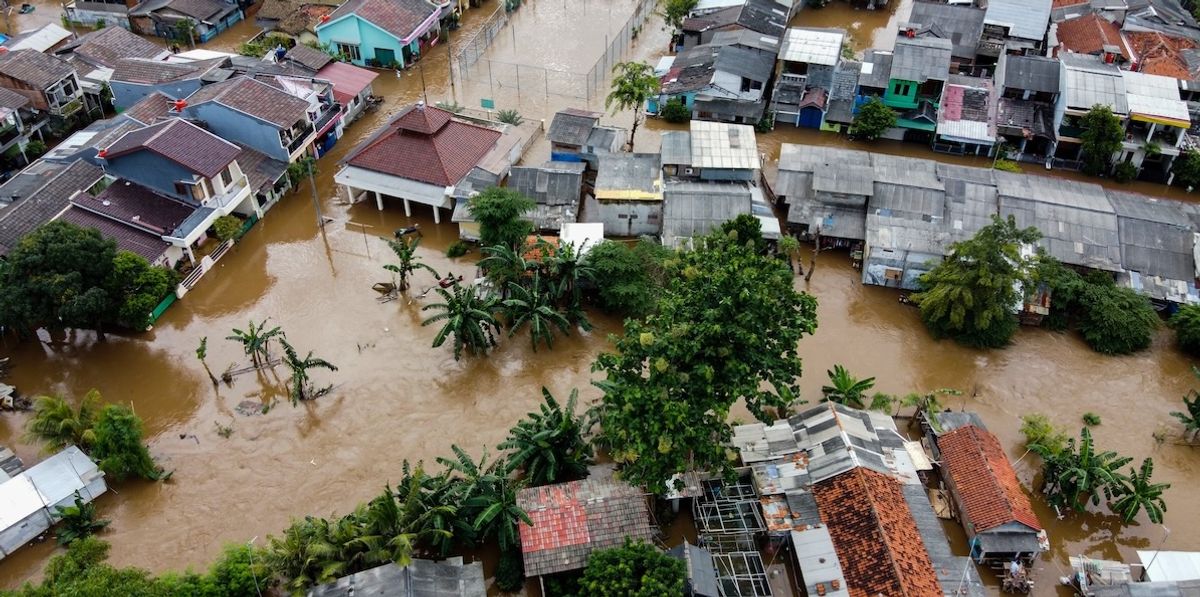As a strategist for climate action in tourism, Jeremy Smith didn’t need a reminder of the increasing threat of weather-related disasters. But Hurricane Beryl delivered one anyway July 1 when, in the words of Grenada’s prime minister, it “flattened” the island of Carriacou, killing at least six people.
The island had been the first place Smith visited with his wife, so the devastation wreaked by the earliest-forming Category 5 hurricane on record resonated personally.
“Things that were once-in-100-years events are becoming once-in-100-day events,” he said. “The regularity and the intensity are increasing.”
Smith also didn’t need any reminders on the importance of his work, but all the meteorological records Beryl broke only reinforced the message behind a report Smith co-authored that was released Wednesday by the Travel Foundation and its environmentally conscious partners.
Subscribe to our newsletter below
While most sustainability awareness efforts focus on the emission of greenhouse gases that are affecting the climate globally, “Climate Justice in Tourism” pushes to show how climate change affects people disproportionately and why it’s important to redress those injustices in an equitable manner.
Failing to factor in climate justice to sustainability efforts means even if governments and companies achieve their goals of curbing carbon emissions, destinations that are most at-risk to climate change’s threats could still wind up being devastated by the proliferation of raging wildfires, pummeling hurricanes and rising floodwaters.
“There’s a risk of people investing time, money, effort, resources, energy, whatever it is [into sustainability efforts] and not really doing what we need to do,” Smith said. “If we don’t factor in our response according to the needs and voices of the most vulnerable, then we’re not really treating the problem.”
In 2023 the Travel Foundation and partners released a report about how the travel industry might achieve sustainability goals while still growing as a sector. The new report — a collaboration among the Travel Foundation; University of Waterloo; Tourism Cares; the Center for Responsible Travel; Cuidadores de Destinos; and Expedia Group —goes farther. It focuses on climate justice, what it means and why it may be even more important than hitting benchmark goals for emissions if the travel industry is going to continue to thrive.
“In terms of climate justice, it’s hard to be guided in something that you don’t know is relevant to your sector,” said Megan Morikawa, a Travel Foundation board member and the former global director of the sustainability office at Iberostar Group. “We probably need to better help the tourism industry understand how relevant climate justice is.”
What is “climate justice”?
The report defines climate justice as “an inclusive approach to climate action that emphasizes the leadership and capabilities of affected communities and recognizes the unequal responsibility that certain groups (e.g. countries, industries, and businesses) bear in relation to both historical and current greenhouse gas emissions. Just climate action centers on those who are most vulnerable to climate change and who are often least responsible for causing it.”
In other words, the world is in this mess largely because of the actions of wealthier countries, which are also responsible for most of the emissions in tourism, while the consequences of climate change – both overall and in tourism – fall disproportionately on poorer countries.
In 2019, for example, high-income countries accounted for nearly half (46%) of all travel and tourism emissions, and two-thirds (67%) of international flight and cruise emissions, according to the report. In comparison, low-income countries accounted for 0.9% of aviation emissions and 0.7% from cruises.
Yet those countries often face greater risks from climate change, while possessing fewer resources to build in the resiliency needed to weather those risks. Remedying those inequities is no easy task, as the report illustrates when considering problems posed by long-haul flights.
The longest of long-haul flights represent just 2% of the total number of trips taken yet generate 19% of tourism’s global emissions, the Travel Foundation’s 2023 report noted. If current growth rates continue, those flights and their total emissions will quadruple by 2050.
So if the travel industry’s goal is simply to reduce carbon emissions, curtailing long-haul international flights around the world would help meet that goal. Problem solved, right?
If we treat climate action or our response to climate change as something that is a chart to be ticked off and measured against … we’re not really engaging with the totality of the challenge.
Jeremy Smith – The Travel Foundation
Not when you factor in climate justice. A closer look at small-island destinations such as the Maldives, Mauritius, Seychelles and Cyprus shows why.
Those sites have some of the largest per capita footprints for emissions in the world, but it’s not because their residents are flying frequently. Rather, it’s tourism emissions that account for between 30% and up to 80% of their national footprint.
Robbing them of the tourism that supports sustainable development in their countries defeats the purpose of climate justice, the report states. That’s especially true after factoring in a 2023 report by the Tourism Panel on Climate Change, which found that travel to and within developing countries made up only 5.4% of tourism’s total transport-related emissions.
Addressing the problem with a consideration for climate justice would mean protecting flights to developing nations that rely on the tourism they bring while reducing far more frequently traveled international routes among wealthier countries.
Backers of the report understand just how thorny some of the issues are.
Morikawa, who was among a stable of experts interviewed by the report’s producers, said to make progress as an industry it’s important to have a mature way to talk about consumption differences between richer and poorer countries.
“The guidance and solutions for travel and tourism should probably start to ask some of those really weedy and tricky questions of privilege and wealth and who gets to utilize a larger portion of the luxury share of the market in the same way that the climate justice picture asks that question for everyone in terms of per capita resource use and consumption,” Morikawa said. “You can compare the footprint of consumption of an American to someone who grew up in India or someone who grew up in West Africa and they’re very different. That sort of level of nuance is not something that I hear regularly in tourism.”
Winning on paper and in the real world
In many ways, the travel industry is still trying to come to terms with sustainability – developing plans, awaiting word from governments and regulators on how things like emissions will be calculated, among other issues. Is it asking too much for travel companies to also confront climate justice?
Smith asks himself that question all the time; the answer is always the same.
“There’s no point sugaring the pill. And there’s no point pretending it isn’t overwhelming,” he said. “All I can possibly say is it’s going to be more overwhelming in three years’ time and five years’ time if we don’t engage with it now.”
The Travel Foundation laid out plans in its 2023 report for the travel industry to meet United Nations’ goals of halving global emissions by 2030 and achieving net zero by 2050. Many travel companies have pledged similar goals. And while no one doubts that would be a significant accomplishment, the report makes clear that isn’t enough on its own.
“You can’t just do it on paper,” Smith said. “And if we treat climate action or our response to climate change as something that is a chart to be ticked off and measured against … we’re not really engaging with the totality of the challenge.
“There are ways of making the books balance. And if that’s what we’re trying to do, then the decisions we make will prioritize the balancing of the books or the achieving of the standard … rather than actually exploring the issues that those standards were designed to facilitate.”
To ensure a real-world impact that extends beyond the numbers, the report emphasizes the importance of inclusivity, collaboration and systems thinking. A successful response, the report contends, will require the involvement of those destinations that are most at-risk; greater cooperation among travel companies; and a holistic approach to problem-solving, as the long-haul flights example demonstrates.
The report resists direct recommendations on how to address the industry’s problems. It speaks instead of being a catalyst for “much-needed tourism engagement with climate justice” while offering ideas for accelerating and deepening industrywide discussions.
Those include issues like funding mechanisms to support resilience building; fair emissions allocation; fair regulations and incentives; and the creation of a destination resilience index to help prioritize responses.
While the task seems daunting, Smith draws hope from the example of how the travel industry responded to COVID.
“People came together and used the situation to explore alternatives, to discuss futures, to see how we might rebuild and change,” he recalled.
When the urgency began to dissipate, he added, “we went back to rebuilding and changing in the old way. But we did see little windows of opportunity open in how we started to talk and listen to one another and form collaborations and partnerships that went noncompetitive, bringing destinations to work with businesses etcetera, etcetera. And I think at the heart that’s what we need to do now.”









